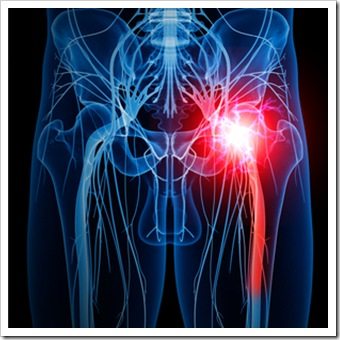Could I Have Sciatica?
by Dr. Richard Huntoon
Read Could I Have Sciatica? by Dr. Richard Huntoon to learn more about Advanced Alternative Medicine Center and our Chiropractic office in Building 400, Pooler Park, Pooler, GA.
We look forward to serving you! Call - 845-561-2225.
 Does every step you take cause you pain that radiates down your leg or legs? Have you become depressed with the pain or been through a series of pain injections to block this pain?
Does every step you take cause you pain that radiates down your leg or legs? Have you become depressed with the pain or been through a series of pain injections to block this pain?
If so, read on.
Understanding A Cause – The Sciatic Nerve
Your sciatic nerve is the longest and widest nerve in your body, and runs from the lower back, down through the buttock, and all the way into the lower leg, where it controls the muscles in that area. It provides sensation to the thighs, legs, and the soles of the feet. When the sciatic nerve becomes irritated, it causes pain in your buttocks or lower back and can extend down one or both legs.
This painful condition is an inflammation of one or both of your sacroiliac joints – situated where your lower spine and pelvis connect.
This condition is commonly known as sciatica.
Could I Have Sciatica?
The most prominent symptom that you are suffering sciatic pain is when it follows the route of the sciatic nerve, as previously described, and is typically apparent only on one side of the body. However, there are variations in how exactly that pain is felt, including tingling, aching, burning, or pins and needles. The feeling depends on where the sciatic nerve is being affected.
Some patients may also feel pins-and-needles in the toes or foot or muscle numbness/weakness in the affected leg or foot. More often than not, sciatica first manifests slowly, then increases in intensity, often being accentuated after sitting, bending, or sudden movements such as sneezing or coughing.
Sacroiliac nerve pain can be aggravated by:
- Prolonged standing
- Bearing more weight on one leg than the other
- Stair climbing
- Running
- Taking large strides
In demographic studies, it most often affects persons thirty to fifty years old and is most commonly a result of general wear and tear, rather than an injury.
Common Causes of Sciatic Nerve Disfunction
- Traumatic injury. A sudden impact, such as a motor vehicle accident or a fall.
- Arthritis. Wear-and-tear arthritis (osteoarthritis) can occur in sacroiliac joints, as can ankylosing spondylitis — a type of inflammatory arthritis that affects the spine.
- Pregnancy. The sacroiliac joints must loosen and stretch to accommodate childbirth. The added weight and altered gait during pregnancy can cause additional stress on these joints and can lead to abnormal wear.
- Infection. In rare cases, the sacroiliac joint can become infected.
Top Choices For Treatment
Conservative care, including chiropractic treatment, is a very effective solution for most people suffering sciatic pain. As there is an array of possible causes of sciatica, treatment plans will be individually tailored depending on what the practitioner finds in your particular case.
Conservative, non-surgical care, may also include one or the combination of spinal manipulation and adjustments, the application of ice/heat therapy, ultrasound, use of a TENS machine, and rehabilitative exercises, or spinal decompression.
Ready To Be On Your Health Team!
Join our winning healthcare team. We know just how important it is to provide our patients with balanced, healthy bodies. Each situation is unique, so we take pride in providing you with innovative solutions for your unique healthcare needs.
If you have any questions about your health or better sustainable healthcare solutions, call and make an appointment today!
For Your Health,
Dr. Richard Huntoon
